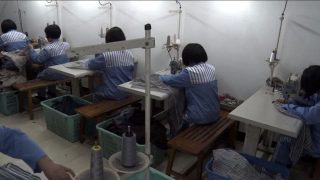On October 5, 2018, retired soldiers from across China came to Shandong to voice their grievances but were suppressed by the state they sacrificed their lives to.


By Zhang Wenshu
October 5 marked the first anniversary of the veterans’ protest in Pingdu, a sub-provincial city in the eastern province of Shandong, where the demobilized military from across China gathered to complain about the mistreatment they encounter from the government they had served for years. The protest was started after a group of 38 veterans was intercepted earlier on the way to petition the central government in Beijing, and law enforcement officers beat them. Nearly 20 partakers of the Pingdu protest were detained.
Bitter Winter talked to some of the protest participants to find out how their lives have been affected after they dared to confront the government, asking it to keep its promises.
Control over veterans intensifies
According to confidential documents obtained by Bitter Winter, after the protests in Pingdu and elsewhere in the country, the government included veterans among the primary targets when implementing “stability maintenance” measures. Those who took part in the protests or frequently petition the government to solve veterans’ issues have been subjected to even stricter control; some have been placed under 24-hour surveillance.
A veteran from Shandong told Bitter Winter that he had been monitored since the protest. Four government-hired underworld thugs take turns watching over the veteran outside his home. Whether going to work, visiting relatives, or taking a walk, he is under constant surveillance. He has to apply for permission from local officials to leave the area. The tight surveillance has become an inconvenience for his employer, and he was fired from his work.
Another veteran from Shandong, who has petitioned the government multiple times, was prohibited from attending a close relative’s funeral because of the 24-hour surveillance. “I defended the country as a soldier, yet now I’ve been placed under house arrest,” the veteran complained.
Other veterans have been detained on trumped-up charges. A veteran-petitioner from the central province of Henan was fined and sent to a detention center accused of “fraud” after local authorities summoned him, pretending to discuss and solve a problem he had previously raised.
In March, another veteran who has petitioned the government multiple times was taken into custody on the charge of “extortion and blackmail,” even though he is over 80 years old.
The majority of veterans reported that their travels had been obstructed after they took part in the protests last year. “Whenever I swipe my ID card to get onto the highway, officials forcibly escort me back,” a veteran from Shandong told Bitter Winter. He once wanted to stay at his relative’s home while traveling, since he didn’t want to spend the night at a hotel out of fear to use his ID card. To his surprise, he saw about ten government officials blocking the entrance to his relative’s house when he arrived there, which has proved his suspicions that the state continuously monitors him.
The monitoring of veterans intensifies even more during important political meetings or holidays and celebrations. Then, specially-designated law enforcement officers carry out secret surveillance and investigations “to maintain stability at all costs.”
During these times, each grassroots-level government official is assigned to supervise a few veterans and must report to their superiors three times a day about their movements. They must also communicate with veterans to understand their ideological tendencies and prevent them from going to Beijing to petition the central government.
Veterans prohibited from sharing meals
In December 2018, a group of veterans from Putian city in the southeastern province of Fujian decided to have dinner together – the first in 40 years. To organize the meeting, they shared information on WeChat, a popular messaging site in China. As it turned out, the police were surveilling the group, and the veterans were prohibited from getting together. Police officers threatened to hinder the employment prospects of their children if they disobeyed.
In a similar incident, another group of veterans from Fujian was also forced to cancel their get-together in February.
“All of us have been through a war. The government is afraid that we’ll get together and talk about political issues,” a veteran said. “I never thought that after serving the Communist Party for so many years, we would end up being monitored even when holding gatherings.”









